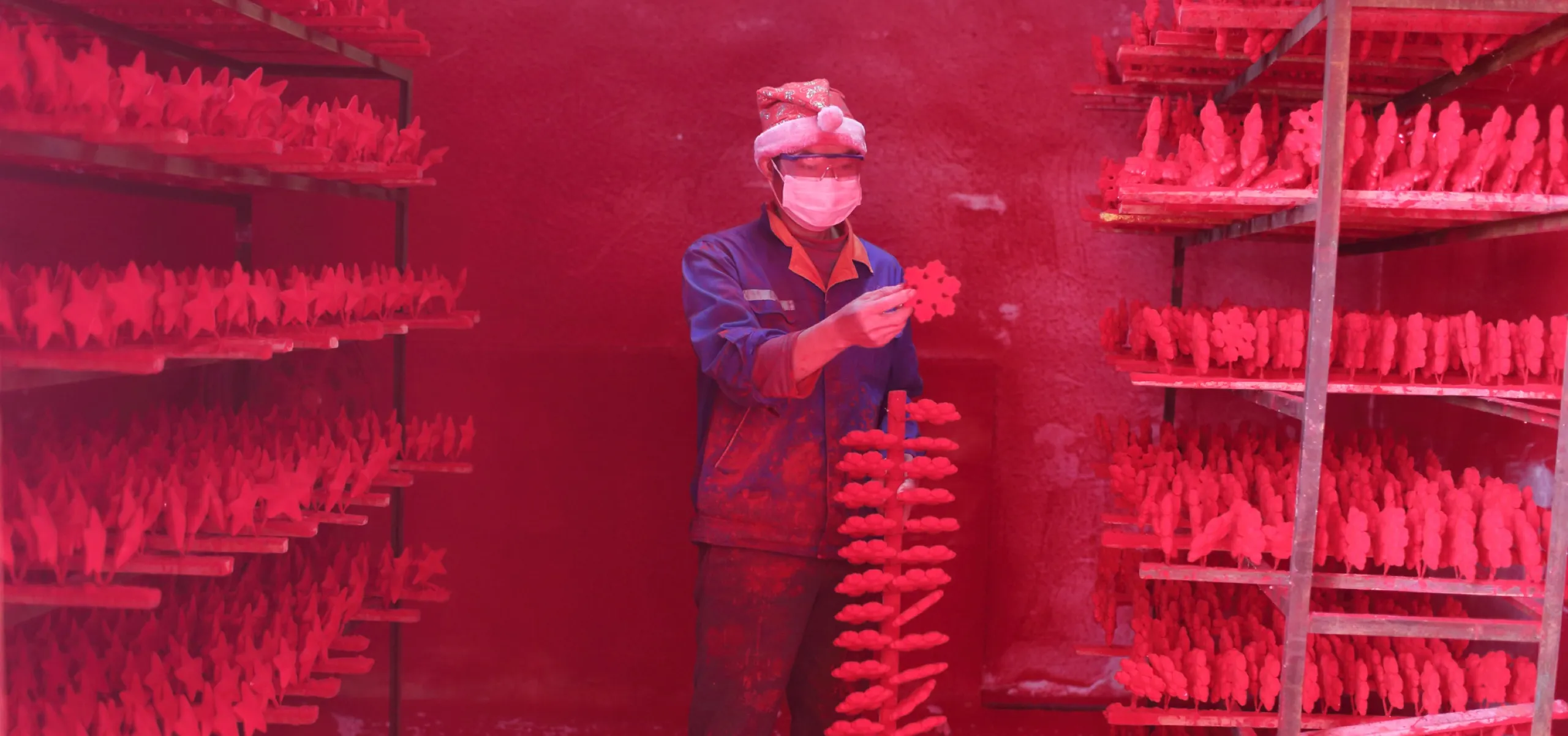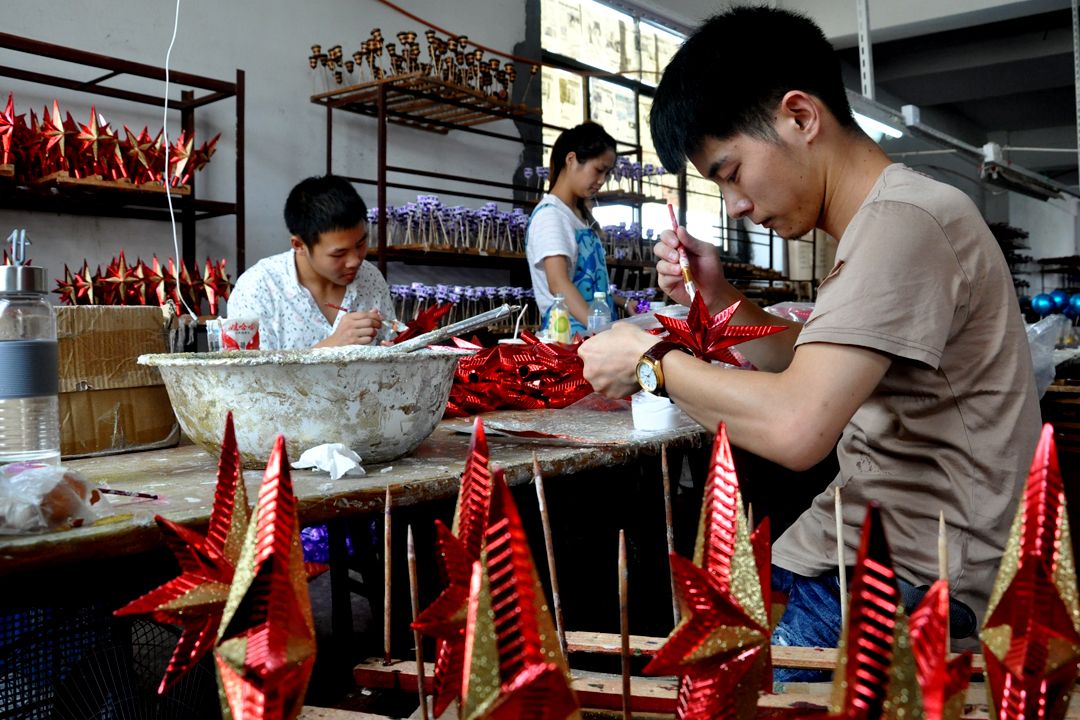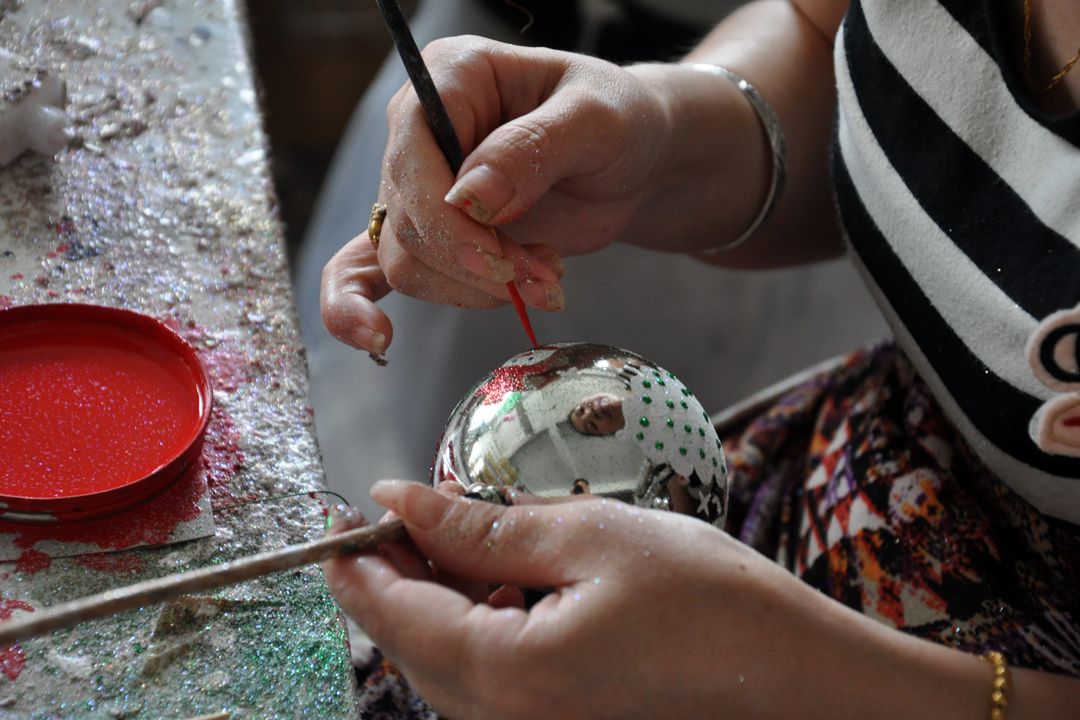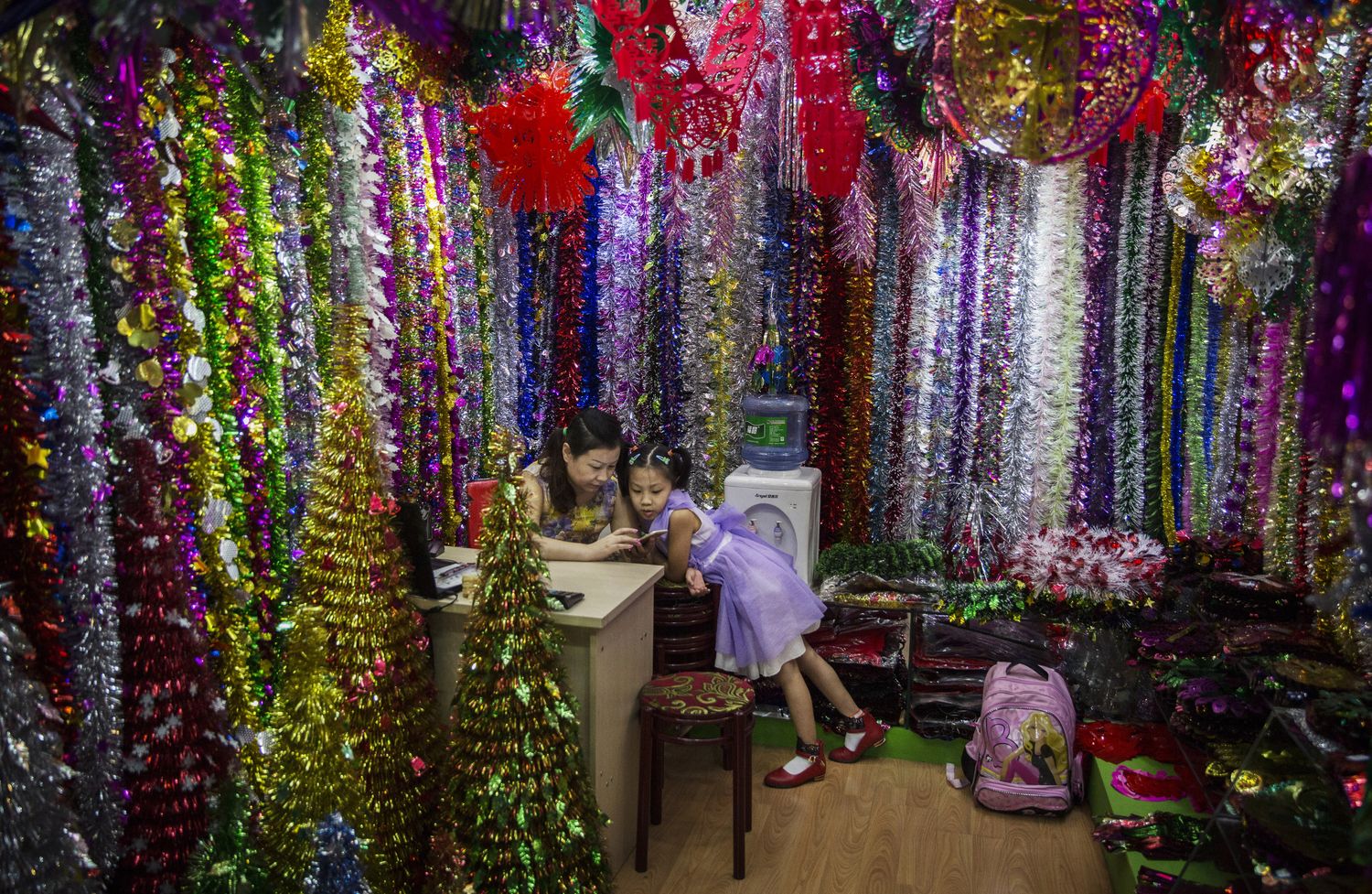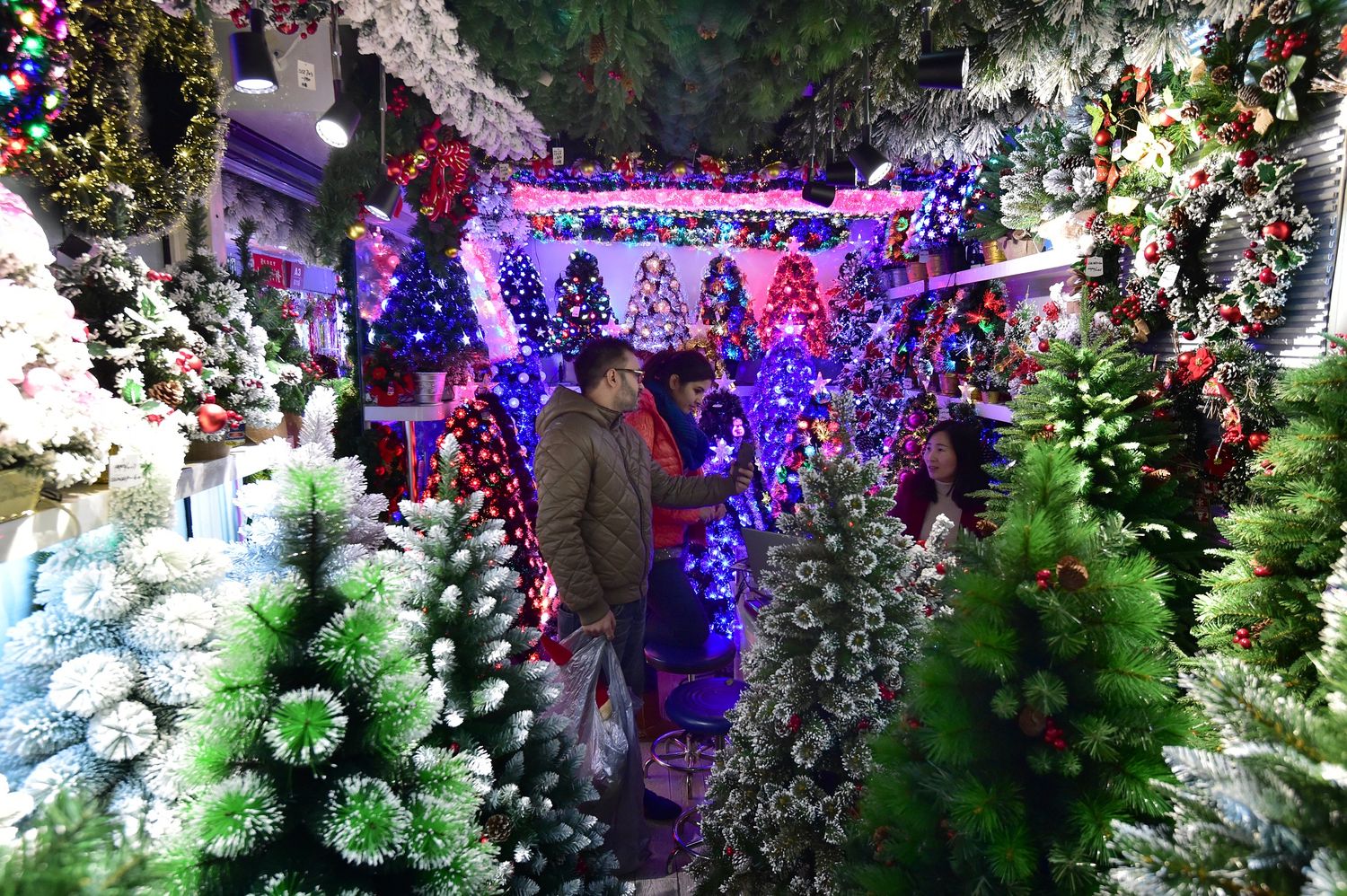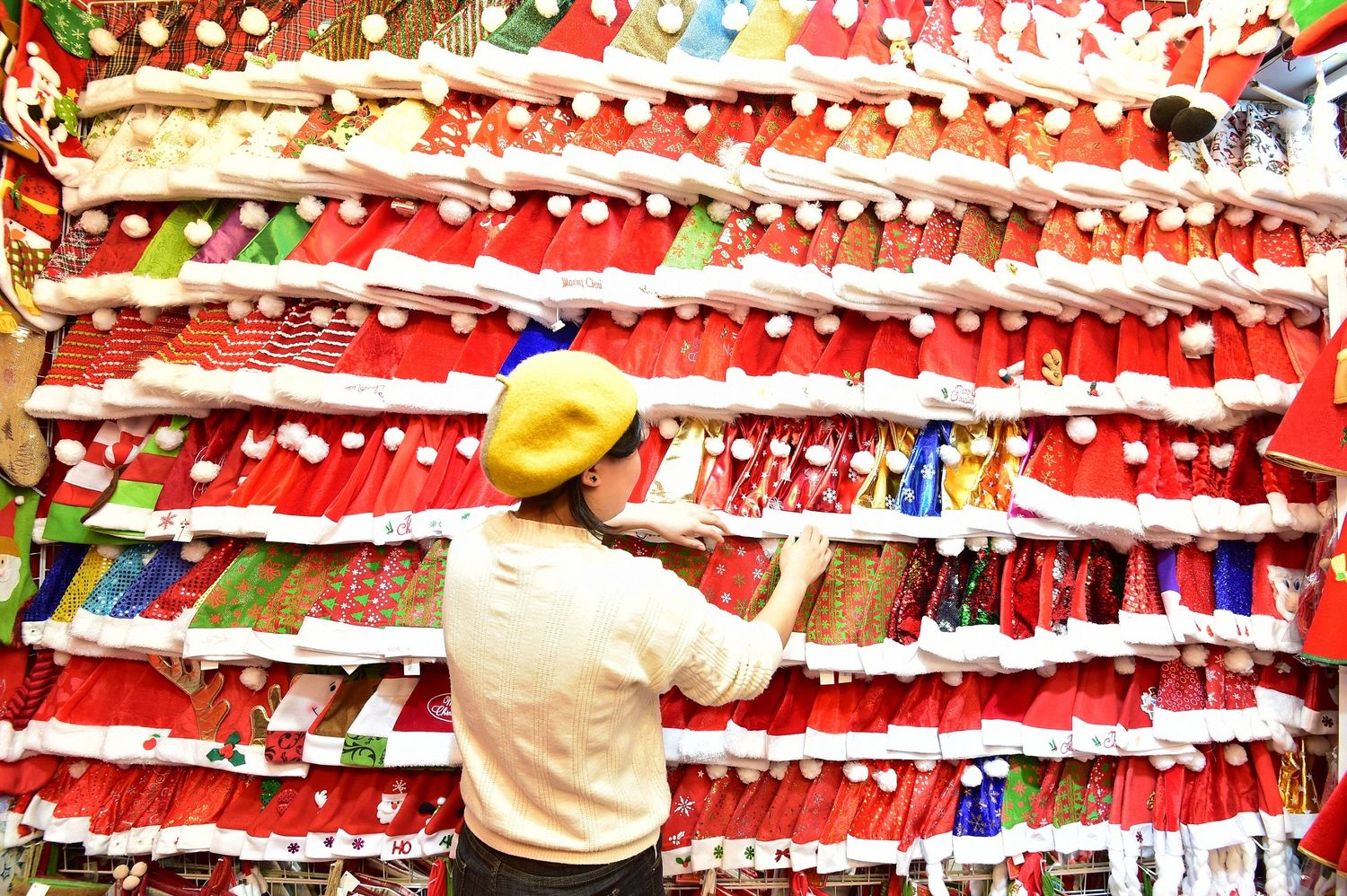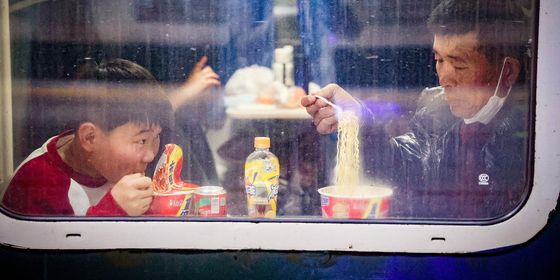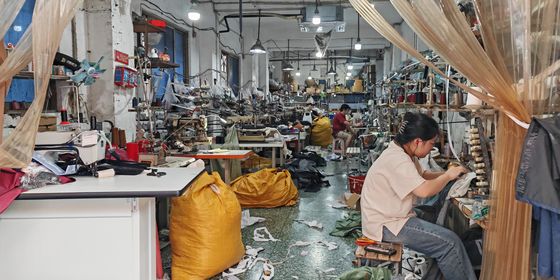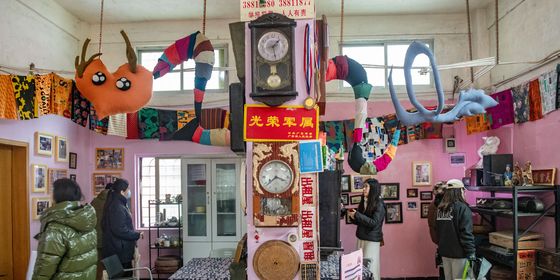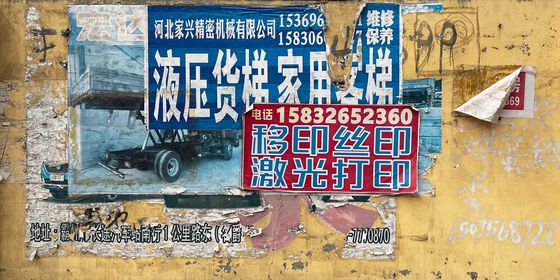It’s always holiday season in Yiwu, a “fourth-tier” Chinese city where migrant workers churn out two-thirds of the world’s Christmas decorations
It’s that time of year again: Christmas decorations have been unpacked from dusty attics and basements, and are sparkling around the home to put one in the mood for the season. But these festive ornaments in all likelihood originated from a faraway place where Christmas isn’t officially celebrated, yet it’s Christmas season all year round: Yiwu city in Zhejiang province, known as the “commodities capital of the world.”
The city of 1.9 million about an hour by train south of Shanghai reportedly produces anywhere from two-thirds to 80 percent of the world’s Christmas decorations. The over 500 factories and workshops in and around the city, most of them privately run cottage industries staffed by migrant workers, churn out baubles, bushes, hats, and trees (the plastic variety) worth billions of dollars every year, according to provincial customs tallies. A substantial amount of these trinkets are sold to the US, Latin America, Europe, and Russia.
Before the pandemic, droves of international buyers used to flock to the city each year to look at supplies and place orders, as Yiwu is also the world’s largest trading hub for almost any other light consumer good one can think of: clothes, furniture, toys, World Cup paraphernalia, and even US election gear. Yiwu International Trade City, a major wholesale market for cheap products made in China, has one area with hundreds of merchants and rows upon rows of stalls dedicated to Christmas decorations alone.
Due to weeks-long shipping times via sea lanes, the peak trading and production for the Christmas season happens during the summer months. For the European market, goods are transported by rail via the Yixinou Railroad, a new transport lane opened in 2014 as part of the Belt and Road Initiative, which reportedly cuts shipping time and costs per container by more than half for Europe-bound goods .
Relatively cheap labor and economies of scale have kept prices in Yiwu low over the years, but government demands to improve labor conditions and workplace safety as well as competition from emerging countries with cheaper production may one day challenge Yiwu’s status as the world’s number-one producer for cheap Christmas kitsch.
A version of this story was originally published on our site in 2014. It has been edited and updated.





